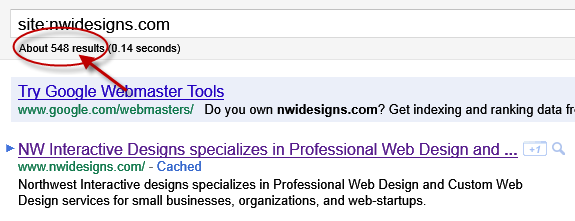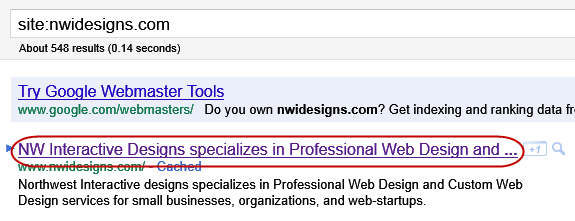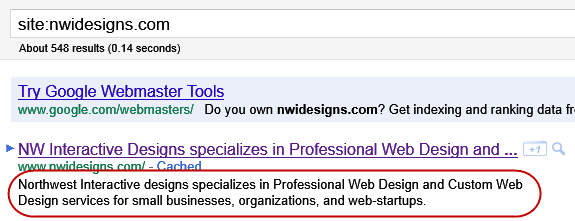

There are really only 2 search engines that you need to be concerned about today, Google and Bing. Covering about 97% of all searches in North America if you are doing well in these two search engines you will be doing well for search engines that provide the worlds majority of searches.
So you may be asking the question, "what about Yahoo, AOL, Earthlink and Comcast" Yahoo gets its search results from Bing, The rest of them get their results from Google. So do well with Google and Bing and you are covering your basis for all the leading search engines. This will save you time and money when performing optimization for your site or if you hire a professional to do it for you. This should give you a new way to think about this when an SEO expert says they will optimize your site for all the leading search engines. In reality they are only working with these two because they know that all the rest, even those that were not mentioned here are getting their results from one of the two leading engines. Of course they are not going to tell you that because it will help them justifying their blown out cost of performing SEO on your site.
The devil is really in the details when it comes to performing well in search results. There are a variety of factors that you must pay attention to when performing SEO on your site. Now hindsight is 20/20 but it is best to apply these best practices when you are developing your website. However if you are reading this then you probably already have your site built and are looking for ways to either improve your ranking or finding a solution because your webmaster did not point this important feature out to you when they was building your site.
So what do these search engines look for when they are listing your websites pages in their search results? There are a variety of factors that play into this and we are only going to hit on the most relevant things to look for. There are literally hundreds of criteria that they look for and this is the reason that it is so hard to find the correct information regarding SEO. There is so much mis-information because the search engines don't provide much detail and there is so much hidden information on these factors that knowing what to do and what to focus on can seem like a daunting task at first. The search engines are constantly innovating their methods and algorithms but the basic principles and foundation of SEO remain for the most part constant and the fundamentals have not changed.
Before we delve into the far reaches of SEO and how it can work for your website I must first point out one very important factor that is often overlooked. I have quite a few clients that want me to setup their site for SEO and when I go to look at their site I find that it is not SEO that they need. For the do it yourself webmaster or those that use some online tool to build their website you are starting off on the wrong foot. If your website looks like it was built by an amateur then it is fair to say that your sites visitors will assume that your business is run by amateurs.
No matter how much you try to optimize your website, if it does not look professional it is not going to make any difference. The other leading factor that has nothing to do with SEO is usability. If your website is confusing or makes it hard to find things on, again it is not going to make any difference how much you pump into your SEO. It does not make any sense to try and bring visitors to your website if all they are going to do is leave.
Is Your Site Indexed?

The first thing to do before you begin is to determine if your site has already been indexed. So go to www.google.com and type your websites name in the search field using the proper question that asks Google if your site has been indexed. You do this by typing "site:www.yourdomain.com" with no spaces and hit enter. Take a look at the image below from a search I performed on my site (site:klmgraphics.com) and in the circled area you can see that I have about 548 pages that have been indexed with Google. Try this on your site and see what kind of results are returned. This should be somewhere around the same number of pages that are on your site, or that you have made available to the search engine to index. In my case there are around 140 pages that I have set to not be indexed and will not show up in this results page. You can do the same thing in Bing and Yahoo to see what the results are of the Bing or Yahoo has indexed.

If your site does not show all the pages indexed there could be other issues, either the pages are hard to get to, there are not enough links to the pages or Google just does not find the content relevant enough to index it. While we are talking about this another tip that I want to point out is what you are seeing in the results pages. Take a look at the image below and note the highlighted text. this is the text that Google found in this pages meta title and is what it uses to index the page title. This along with the next tip are keys to getting a page indexed. If you do not have a meta title then Google is not going to index it since it does not know what to call the page.

The last part of this tip is to note the highlighted image below and understand where this text is coming from on your page. This is the description text and if you have a meta description this is what will be displayed. Although it is still important to have a meta description, if you don't then Google may still index the page and will reference the the text in the first paragraph to add here.

Have you though about your Keywords?
If you have not thought about your keywords your are behind the eight ball with SEO and this is one area that truly should have been at the forefront of your websites design. Keywords or keyword phrases (meaning more than one word to make up a keyword) are critical to getting rank authority on any given page. Along with determining your keywords is to understand how your site visitor is searching for you. This is a key component that every SEO master understands and uses in order to get your sites pages listed. The keywords you use, the placement of them on a page and the density at which you use them are all factors you must take into consideration when performing a keyword analysis on any given page.
Keywords are like the sign outside your store and it is this sign that let those driving by know what you do or what you are selling. Your keyword analysis is critical in determining what keywords someone is using to find your site. Optimizing for the wrong keywords is a classic example of what is called a disconnect and is a rupture between the site and the terms the target audience is using in the search engines. You cannot know what keywords are best to use unless you do a keyword analysis and you can miss important terms that people are searching for. The keywords you think are important are not and you will waste a lot of time building and optimizing your pages that simply won't work.
Steps to Keyword Analysis
So the first step in determining what keywords to use is to guess! Write down the keywords you think are important. Ask around - what keywords you thing are important, what terms do others think are important and look at your competitors websites source code, especially the meta tags. then use a keyword analysis tool that searches through actual search data to determine what people are really looking for. Do Not skip this step as it is the single most important step in determining what keywords are going to best work for your website.

Where this is really abused is for headers and lead-ins where you want a fancy look but search engines are programs without eyes and only read text. If you are ever wondering what the page looks like to a search engine spider, right click on an empty spot on the page and click view source. What is displayed is what a spider sees. You will notice that there is no images or anything that makes the site look cool.
Keep Flash to a Minimum!
Another thing that people like to put on their website is flash files or to create an entire website out of flash. Flash is for humans and text is for search engines. It does not hurt to have some flash on a page but don't over do it and don't assume that your content that is in the flash file will help your SEO. Flash and media such as videos and voice will not be read by a search engine and should never be thought of as anything more than something to entertain or enlighten the human site visitors.
Are Links Important?
Links help your site in a number of ways by offering assistance to the search engines that are looking for relevant content to index. If you don't have links to your pages then it is likely that those pages will never be indexed. These links come in two varieties, internal links such as menus and links from within articles on your own site and those that are from other sites linking to information on your site. Although it is still critical to perform internal linking, of these two the most sought after are the external links and especially those from sites that have already been found as authority by search engines. If others don't care enough to link to your site then why should search engines care to index it?
The key rule of importance that these links need to have is relativity. Meaning that the link text being used or the page meta tags that the link is coming from should be related somehow. So lets say that I have a site that sells Tea and distributor of my Tea is linking back to one of my articles or products. If the link text they are using is coming from a page where they are talking about coffee and the link text says something like "coffee is great but check this out", then the link is not going to be viewed as relevant since it is talking about coffee and they are linking to a page that talks about Tea. Now if that link said something like " coffee is great but Tea is better" then the link is going to have more weight and will be viewed by the search engines as relevant and give you a higher link authority for that page. The higher the pagerank of the page that has the link back to you on it, will help to give your page a higher rank authority as well.
Are My Outgoing Links Going to be Harmful?
The biggest question I get asked after telling the client that we need to link to other sites using this relative linking is "Will this be harmful to my site?". Now no one is saying to link to your competitors and we already know that our competitors are not likely to link to us. What we are talking about is giving what you say credibility. This is to give your site more value not less and adds to the value and relevance of your page topic. It is not about filling your pages with links either, it is about blending the content on your site with relevant content from other sites to give your pages more value and strengthen the trust between your site and your sites visitors.
I hope this article clears up at least some of your questions regarding the principles behind SEO and empowers you with the knowledge to make better choices when you create your pages? If you have any questions for me or would like to talk to me about performing SEO on your website, please feel free to get in touch with me HERE. I would be happy to answer your questions or point you to the right resources where you can get the answers you seek. I would also be happy to discuss providing you with my SEO services and help you to perform better in the search engines.

